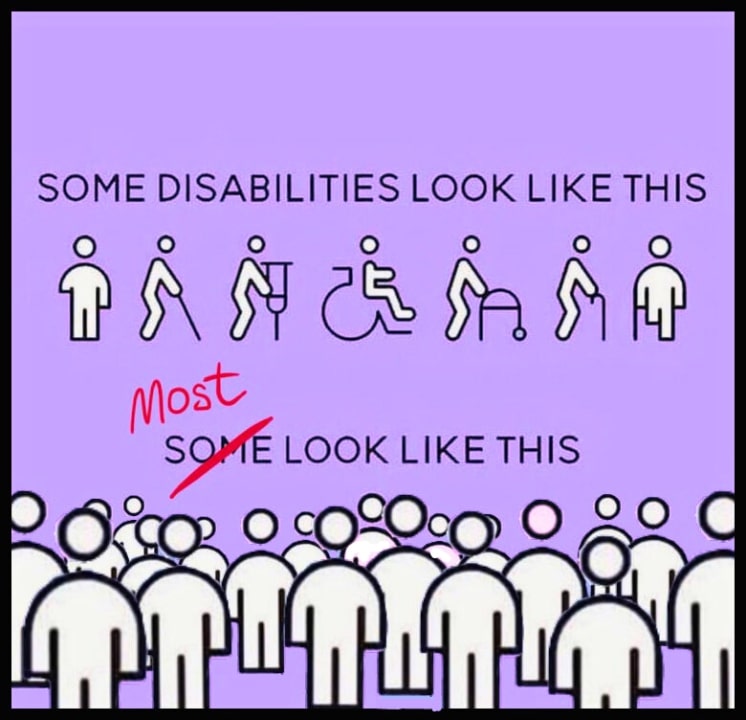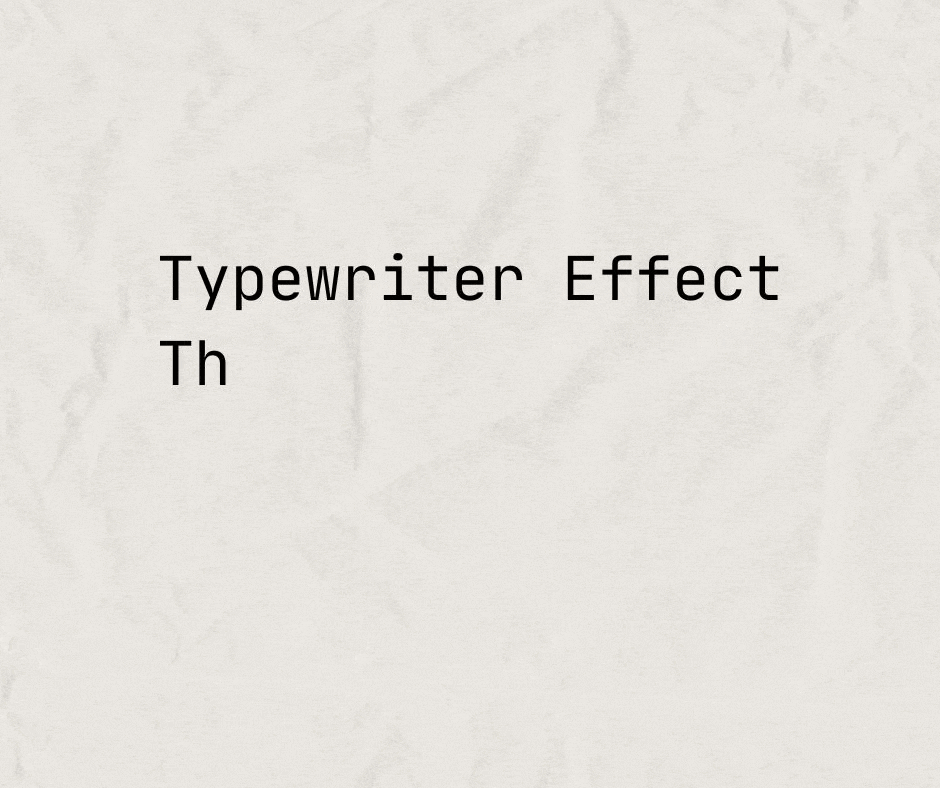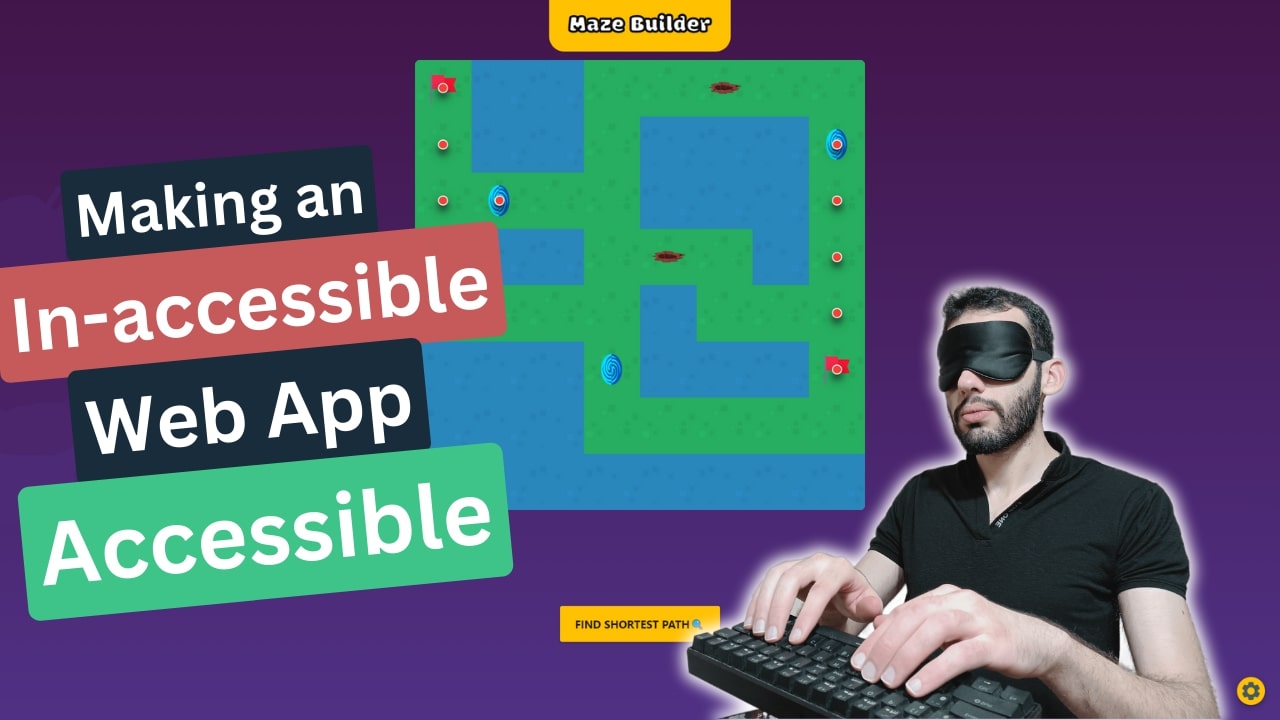Why Web Accessibility is More Important than What Most People Think

Have you ever thought how many people are NOT able to use your "awesome" website/app?? 🤔
According to a recent study by WebAIM: 96% of the top websites are NOT really accessible!!
Someone here will likely say: "But there are not that many people with disabilities using our website, right??"
Then hear this: More than 1 Billion person suffer from some kind of disability. That's more than 15% of the world's population!! You didn't expect this, did you? Neither did I to be honest...
The true definition of Web Accessibility
But wait, before we go any further, let's define what "Web accessibility" truly means, because there's a lot of misunderstandings about that.
But before we go any further, it’s important to clearly define what we mean when we say “web accessibility”.
Web accessibility means that:
Anyone with internet access should by able to use the web.
And by “use” we mean:
1- Perceive
2- Understand
3- Navigate
4- Interact
5- And Contribute
Without any barriers or restrictions.
Accessibility is NOT only for the disabled
One VERY WRONG misconception about accessibility is that: ”It’s only meant for people with permanent physical disabilities, and those people most likely don’t use our website anyway.”
First of all, there are waaaaaay more people with some sort of disability than what you would initially think (as we saw in the beginning).
But most of these people continue (or try to continue) living their lives normally, so we might not even know that they have a disability!
I was shocked to learn that:
- Up to 1 in 4 adults in the United States have some type of disability. (25%)
- 1 out of 12 men have color blindness (8%)
- 1 out of 5 people suffer from Dyslexia (A learning difficulty)
But also, accessibility is NOT ONLY for physically disabled people.
It’s also for:
- Older people
- People using a mobile phone (small screen)
- People using lower-end devices
- Someone with slow internet connection
- Someone who lost his glasses
- Someone with a broken arm
- Someone in a loud environment
- Someone in a bright environment
…and many many more examples.
All these situations could be considered as some form of disability, right??
So making your website accessible will result in a better UX for ALL of your users.
(ℹ️ Info: more than 80% of people who use videos subtitles do NOT have any hearing issues)
The web has always been about breaking down barriers and connecting people across the globe. 🌍
The web is supposed to be for everyone, without any exclusion.
So saying something like:
“You can only use our website if you:
1- Have a high-end machine
2- Have a fast internet connection
3-Don’t have any sort of visual/hearing/motor problems
…etc”
This is not inclusive at all.
Final Words
Accessibility for everyone is the right and ethical thing to do.
People with disabilities already face more challenges in their normal day-to-day life than the rest of us.
Yet, many of them are trying their best to live and do what any other person could do.
So instead of adding more barriers in their way, we should help them as best as we can by being considerate and not excluding others just because we don't (currently) have the same problems they have.
I'm planning to publish more articles that talks about this subject (but in more practical way). So stay tuned for that.
Until next time, Have a great day 😊

About Me
I'm a freelance web developer who specializes in frontend.
I have a special love for React. And my personal goal is: Building things that are Awesome! ✨
If you are someone who is building a project where high quality is a MUST, then Let's Chat! I'll be glad to help you with it.
If you liked this article, you might also like:


